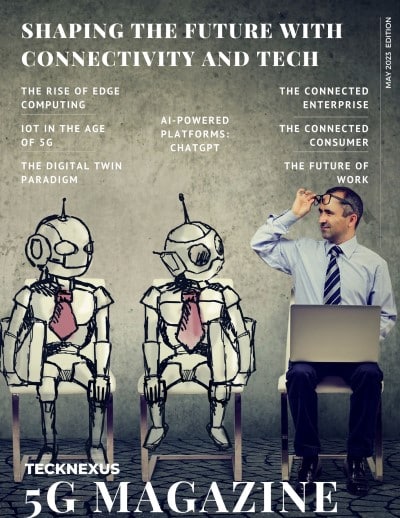- Article & Insights
- November 10, 2024
This edition is dedicated to “Shaping the Future with Connectivity and Tech,” a theme that truly encapsulates the transformative power of technology in our lives. In this edition, we delve into the multifaceted world of 5G, AI, AR/VR, IoT, and other emerging technologies rapidly revolutionizing various aspects of our society, from our workplaces to our shopping experiences to industrial sectors.
- 5G, AI, API, AR, Automation, Digital Twin, Edge/MEC, IoT, Private Networks, Telco Cloud, VR
























